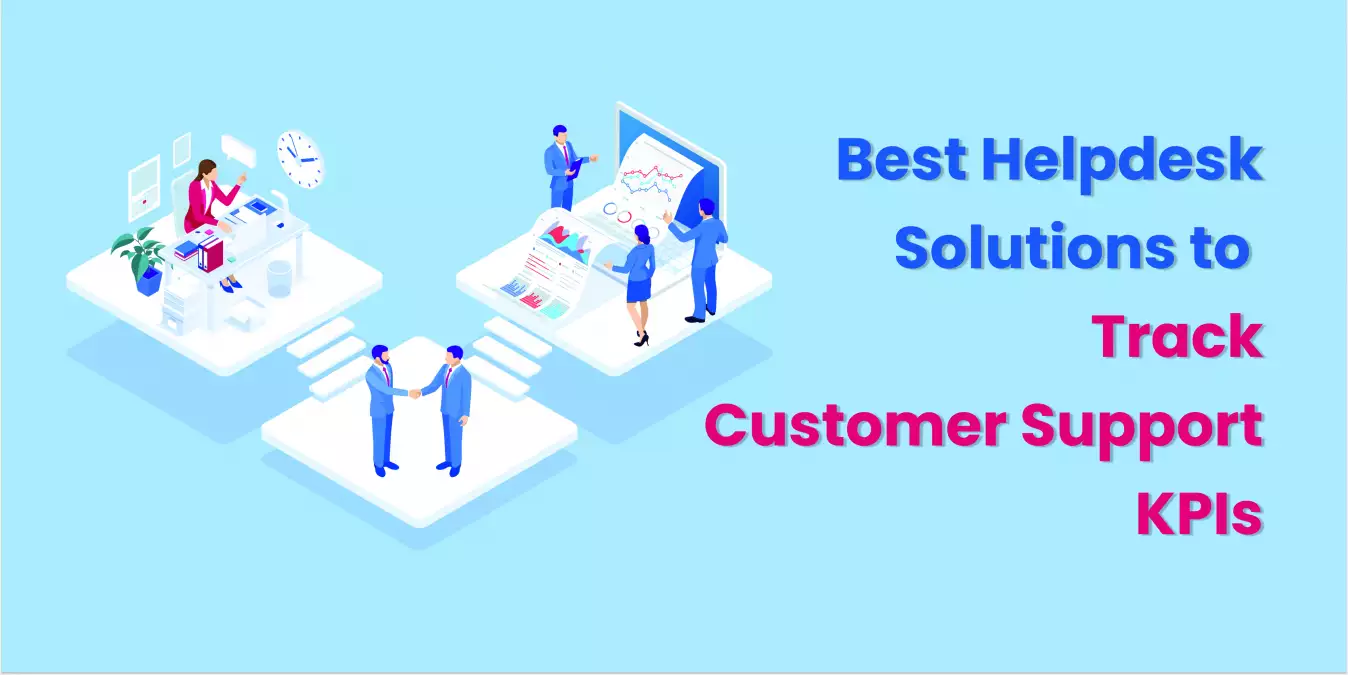I think we can all agree that the way we approach customer support and its challenges has changed this year. This so-called “paradigm shift” has many reasons.
All businesses experience that customers have more and more expectations when it comes to customer service. They want efficient answers, and they want them as fast as possible. And why do I say that this change has been very prominent in this last year? It is partially thanks to the appearance of Artificial Intelligence and its timely delivery to all kinds of queries.
We had the chance to experience something that we never had before. Questions are answered in a couple of seconds. Information is flowing at the speed of light with extremely high accuracy. We get what we expect without any waiting times, and the outcome is just simply amusing.
People now expect that in customer service as well. But how can companies achieve such speed, such accuracy, and such high-value responses in their support? You can probably anticipate the answer by now: by implementing AI technology in their customer service.

As mentioned before, this digital transformation has caused customers to have less patience to wait for their support. Timely responses are crucial and non-negotiable now. There is constant pressure on the team members to handle the increasing number of tickets. All while maintaining fairly reasonable resolution times. However, at some point, this gets incredibly difficult when relying solely on human capabilities.
A report by HelpScout emphasizes that AI-driven chatbots can efficiently handle resources in your organization’s support. These AI tools are helping your employees. They take the burden off their shoulders from repetitive, mundane tasks. They answer frequently asked questions and deliver these in just a couple of seconds.
So, here we can witness a clear win-win situation. The customers’ expectations are met. They have their questions answered extremely quickly. So, their customer experience and satisfaction rise rapidly. Plus, your customer support team doesn’t have to deal with these every-day problems. They have the time, energy (and enthusiasm) to focus on more complex issues that need to be addressed.
Okay, so we see that chatbots are great, right? They are almost too good to be true. Well, yes, they come with a great number of benefits, however, they are just “robots”, after all. They don’t understand what “personal” interactions mean. So there comes the great challenge. Making AI-driven communications as personal as possible for your customers.
If you needed to decide which one is more important, speed or personalization in your customer support, which one would you choose? Actually, don’t attempt to answer this, it was a tricky question. Both are equally important, and they shouldn’t be prioritized to come at the expense of the other.
We’ve covered the significance of speed, but what about personalization? According to an article by Forbes, consumers don't want robotic, canned responses from AI chatbots. They want to receive human-like answers. They want to be seen as individuals with individual needs that are taken into consideration when providing support.
So, how can Artificial Intelligence be used for personalizing your messages? Geoff Crain, Senior Director of Sales & Marketing at Kingstar Media explains the effect of AI. He says it can improve the user experience in terms of speed, accuracy, and personalization. He adds that “because AI can analyze user behavior it can help tailor content and provide recommendations based on individual preferences which makes emails more personalized.”
There you have it. AI and personalization can indeed come hand in hand if implemented efficiently. The great news is that speedy responses don’t have to be sacrificed at the expense of warm, human-like, personal interactions. You can keep your customers feeling valued, cared for, and special.
The best advice given by Geoff Crain puts it perfectly: “Ensure there is a seamless integration between AI and customer support agents. There needs to be a clear transition of AI interactions to human assistance. If the customer support staff is already provided with the necessary information from the AI tool it makes the customer support personalized and more empathetic.”
We covered the abilities of AI-powered chatbots and how they can be used to enhance the customer experience. Nonetheless, many of the customer queries don’t come in the chat messages, but in the form of emails. Until now, these messages couldn’t be handled by AI bots. These needed to be answered by human agents, which took a lot more time than just a couple of seconds.
Well, this has changed recently. A game-changer entered the market that completely shook up customer support for SaaS companies. SAAS First’s AI-powered innovation called “Reply with Milly” can respond to incoming emails in just 10 seconds. In addition, it delivers on that promise without compromising personalization.
The Reply with Milly feature analyzes the query in the email. It uses the knowledge base provided to it to answer the questions with the right solution from the database. In addition to this, users can add personal notes that will be included in the AI-generated response. Plus, they have the flexibility to edit, decline, or approve automated email responses.
What is more, you can also set up such factors as the level of formality, empathy, humor, technicality, positivity, and length of the response it gives.
The outcome is a completely automated message, that is also controlled by human insight. Within just 10 seconds, you have a well-crafted, tailored, and customized message that is ready to be sent to your customers.
This is a perfect example of how speed and personalization can be applied into your customer support effectively. If you wish to redefine your support system, AI-driven solutions like "Reply with Milly" could be your ticket to stellar reviews.
Everyone always talks about how AI impacts the customers and their experience in the support process. On one hand, the spotlight is rightfully directed to this aspect of the new technological advancements. On the other hand, we cannot oversee the impact it has on the employees working in customer service. AI offers a chance for increased job satisfaction. Also, it offers the benefit of opportunities for learning and improving as individuals in the field. Let me explain why.
Let’s start with the first aspect: increased job satisfaction. I briefly mentioned this earlier, but I would like to put an emphasis on it again. Artificial Intelligence helps employees tackle repetitive, mundane, every-day tasks. Tasks that would otherwise take up human agents’ time, energy, and focus. When employees don’t have to do the same things over and over again, they can have more rewarding experiences with the more complex issues.
Moving on with the second aspect, AI can also help improve the efficiency of the support team. According to TechCrunch, “AI learning can analyze what traits and behaviors employees bring to customer interactions, raising the bar for all. This is also done in real time, which can improve any case as it’s occurring. Today AI can learn from top performers and share what makes them so great”. Importantly, these AI systems also offer a great deal of analytics and reports. These can be further used to identify employee pain and to prevent burnout.
Are we facing a win-win situation once again? Yes, that is right. AI-enhanced communication benefits your customers and your employees at the same time. It elevates your team's skills, reduces stress, and enhances job effectiveness. What’s not to love here?
Implementing AI technology into an already existing and operating system is easier said than done. You have to prepare yourself for a long and demanding journey full of questions and defined goals. Let me tell you the most essential steps you need to consider when you want to transform your customer support.
First, it is really important to go back to your roots. Before jumping right in, you need to sit back and look at the bigger picture. Assess your goal with this. What would you like to achieve with the implementation? Do you aim to reduce ticket resolution time, increase Net Promoter Score (NPS), or enhance your customer support team’s work efficiency?
Second, you need to examine the tools you are currently using. How would AI fit in or replace these?
Third, As Deloitte suggests, equipping agents with timely and relevant knowledge is key to the service. Make sure your agents are knowledgeable about the implementation of the new technology, and know how they can handle it.
Fourth, and this is a very important one: ensure a smooth transition from AI interactions to human assistance. This can be achieved by using solutions that easily integrate with your current customer service software.
And finally, once you manage to put the AI technology into action, make sure to monitor its performance. Always look for ways to fine-tune and improve the service. You can gain significantly high-value feedback from your customers and your employees as well.
We live in an age where we want to give and receive information as fast as possible. This desire was influenced by Artificial Intelligence. This then escalated the need for its utilization in customer services as well.
As we can see, AI also holds its promise in this field. Speedy communication, precise and authentic information, tailored responses, and so much more. AI-powered emails, specifically, achieve blazing-fast response times. Plus, they ensure the service remains highly personalized. And let's not forget the added advantages from the customer support team’s point of view. Reduced employee stress, greater job satisfaction, and robust analytics for refining your strategy.
To sum it up, AI-driven customer support allows you to have the best of both worlds: speed and a personalized touch.
Who would’ve thought this was possible a few years ago? Well, not many of us, I reckon. But among many others, SAAS First made it feasible and available for all businesses. Try it for yourself, and see your customer support transfer from great to excellent!

 Csilla Fehér
Csilla Fehér


 Csilla Fehér
Csilla Fehér